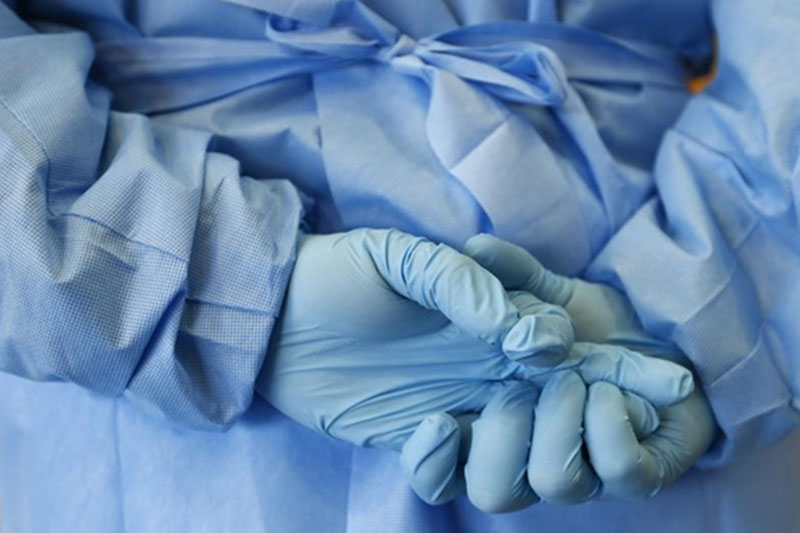MANILA, July 1 (Reuters) - Philippine President Rodrigo
Duterte on Tuesday kept partial restrictions in the capital for
another two weeks as he tries to contain the spread of the new
coronavirus while reducing the pandemic's economic damage.
More than 19,000 new cases of the new coronavirus have been
recorded since Duterte eased one of the toughest and longest
lockdowns in the world for residents in the capital Manila from
June 1 to breathe some life back into the economy. The Philippines, which before the pandemic was one of Asia's
fastest growing economies, is facing its biggest contraction in
more than three decades after the coronavirus shuttered
businesses and crushed domestic demand.
Finance Secretary Carlos Dominguez said restrictions in
Manila, which accounts for 40% of the country's gross domestic
product, should be loosened further "as quickly as possible" so
more business will start humming again and more people can go
back to work.
Most businesses in the capital have been allowed to reopen
but in a limited capacity.
"The reality today is that the virus is not going to go away
and we will have to live with it for a very long time,"
Dominguez said.
Duterte also said in a late televised address strict
lockdown measures, which were reinstated in Cebu City from June
16, would be maintained to slow the spread of the virus in the
country's fifth most populous city.
Cebu city now accounts for over 12% of the nationwide tally
of confirmed coronavirus cases, making it the new hot spot of
infections in the Southeast Asian country.
The country's confirmed cases totalled 37,514 as of June 30,
while the number of fatalities has reached 1,266.
Health authorities have conducted more than 666,000 tests
since January, or 0.62% of the 107 million population, still
below the government's 1.5% target.
But Harry Roque, the president's spokesman said in a media
briefing on Tuesday that the government was "winning" the fight
against the coronavirus.
- English (USA)
- English (UK)
- English (India)
- English (Canada)
- English (Australia)
- English (South Africa)
- English (Nigeria)
- Deutsch
- Español (España)
- Español (México)
- Français
- Italiano
- Nederlands
- Português (Portugal)
- Polski
- Português (Brasil)
- Русский
- Türkçe
- العربية
- Ελληνικά
- Svenska
- Suomi
- עברית
- 日本語
- 한국어
- 简体中文
- 繁體中文
- Bahasa Indonesia
- Bahasa Melayu
- ไทย
- Tiếng Việt
- हिंदी
Philippines keeps partial restrictions in the capital to fight virus
Published 07/01/2020, 01:51 AM
Updated 07/01/2020, 02:00 AM
Philippines keeps partial restrictions in the capital to fight virus

Latest comments
Install Our App
Risk Disclosure: Trading in financial instruments and/or cryptocurrencies involves high risks including the risk of losing some, or all, of your investment amount, and may not be suitable for all investors. Prices of cryptocurrencies are extremely volatile and may be affected by external factors such as financial, regulatory or political events. Trading on margin increases the financial risks.
Before deciding to trade in financial instrument or cryptocurrencies you should be fully informed of the risks and costs associated with trading the financial markets, carefully consider your investment objectives, level of experience, and risk appetite, and seek professional advice where needed.
Fusion Media would like to remind you that the data contained in this website is not necessarily real-time nor accurate. The data and prices on the website are not necessarily provided by any market or exchange, but may be provided by market makers, and so prices may not be accurate and may differ from the actual price at any given market, meaning prices are indicative and not appropriate for trading purposes. Fusion Media and any provider of the data contained in this website will not accept liability for any loss or damage as a result of your trading, or your reliance on the information contained within this website.
It is prohibited to use, store, reproduce, display, modify, transmit or distribute the data contained in this website without the explicit prior written permission of Fusion Media and/or the data provider. All intellectual property rights are reserved by the providers and/or the exchange providing the data contained in this website.
Fusion Media may be compensated by the advertisers that appear on the website, based on your interaction with the advertisements or advertisers.
Before deciding to trade in financial instrument or cryptocurrencies you should be fully informed of the risks and costs associated with trading the financial markets, carefully consider your investment objectives, level of experience, and risk appetite, and seek professional advice where needed.
Fusion Media would like to remind you that the data contained in this website is not necessarily real-time nor accurate. The data and prices on the website are not necessarily provided by any market or exchange, but may be provided by market makers, and so prices may not be accurate and may differ from the actual price at any given market, meaning prices are indicative and not appropriate for trading purposes. Fusion Media and any provider of the data contained in this website will not accept liability for any loss or damage as a result of your trading, or your reliance on the information contained within this website.
It is prohibited to use, store, reproduce, display, modify, transmit or distribute the data contained in this website without the explicit prior written permission of Fusion Media and/or the data provider. All intellectual property rights are reserved by the providers and/or the exchange providing the data contained in this website.
Fusion Media may be compensated by the advertisers that appear on the website, based on your interaction with the advertisements or advertisers.
© 2007-2024 - Fusion Media Limited. All Rights Reserved.